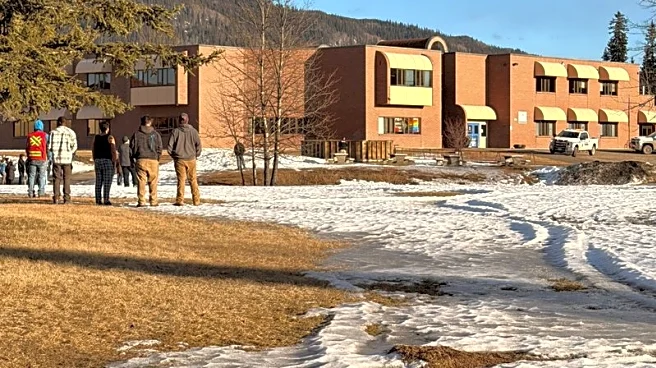What's Happening?
A severe snowstorm has trapped nearly 1,000 trekkers near the eastern face of Mount Everest in Tibet, prompting a large-scale rescue operation. Chinese state media reported that villagers and rescue teams were deployed to clear snow and relocate stranded hikers to the township of Qudang. The snowstorm, which began on Friday evening, led to the suspension of entry to the Everest Scenic Area. Trekkers faced hypothermia risks due to the wet and cold conditions, with tents collapsing under the weight of the snow. The rescue operation is ongoing, with trekkers being brought to safety in stages.
Why It's Important?
The incident highlights the unpredictable nature of weather in the Himalayas and the risks associated with trekking in high-altitude regions. The snowstorm disrupted tourism during China's National Day holiday, affecting hundreds of visitors. The rescue operation underscores the importance of preparedness and rapid response in ensuring the safety of trekkers. The event also draws attention to the broader impact of extreme weather conditions in the region, as neighboring Nepal faces flash floods and landslides, resulting in significant loss of life.
What's Next?
Rescue efforts will continue as authorities work to bring all trekkers to safety. The local government and rescue teams are coordinating to ensure the remaining trekkers are relocated to Qudang. The incident may lead to increased scrutiny of safety measures and emergency preparedness for trekking activities in the region. Additionally, the ongoing extreme weather conditions may prompt further evacuations and relief efforts in affected areas.
Beyond the Headlines
The snowstorm and subsequent rescue operation may influence future tourism policies and safety regulations for trekking in the Himalayas. The event could lead to discussions on climate change and its impact on weather patterns in high-altitude regions. The collaboration between local villagers and rescue teams highlights the importance of community involvement in emergency situations.









